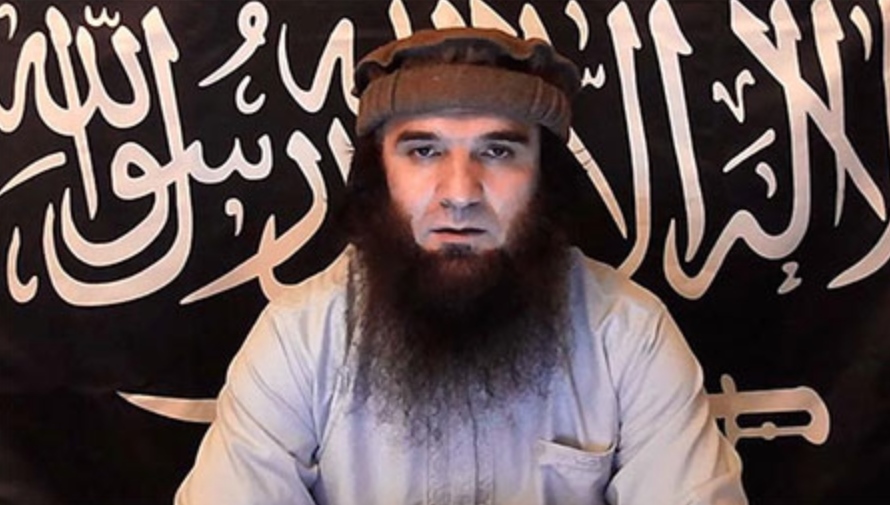
Caucasus Emirate Amir Killed in Dagestan
Publication: Eurasia Daily Monitor Volume: 12 Issue: 77
By:

Observers who have followed the evolution of Russia’s campaign against the Islamic armed resistance in the North Caucasus over the past 16 years probably noticed that Moscow has no strategy in the region, but only a set of chaotic reactions. Apart from special operations, the Russian government does not seem to pursue any other way to reduce tensions in the region apart from launching special operations against specific militants. By trumpeting every killing of a militant as a grandiose achievement, Moscow perpetuates its chaotic strategy in the region.
On the morning of April 19, the police introduced a counter-terrorist operation regime in the village of Gerei-Avlak in Dagestan’s Buinaksk district. The Federal Security Service (FSB) apparently had information about someone illegally residing in the village. As is usual in special operations, a house was sealed off. By evening, the children were allowed to exit the building, but a woman refused to leave despite being begged to do so by her parents. An armed clash lasting several hours ensued in which five people were killed—three men and two women. Aliaskhab Kebekov, the leader of the Caucasus Emirate, was identified among the slain militants. Two other mid-ranking field commanders, 33-year-old Shamil Gajiev and 35-year-old Omar Magomedov, were also identified among those killed. Gajiev was the amir of Dagestan’s Untsukul district and Magomedov was amir of the Central Sector (Moskovsky Komsomolets, April 20).
Zukhra Abdulaeva, a 38-year-old resident of Makhachkala and wife of Aliaskhab Kebekov, was also identified among those killed, along with Magomedkhanova Jamilya Guseinovna, a 33-year-old resident of Buinaksk and the wife of Omar Magomedov (kavkaz-uzel.ru, April 20). An oath of allegiance by the two amirs to Kebekov had earlier been posted on YouTube. One of the slain amirs was shown in the video, which means that the security services may have been able to use the video to locate Kebekov.
The slain leader of the North Caucasian rebels, Aliaskhab Kebekov, will be remembered for statements designed to change the armed resistance in the region. For example, Kebekov explicitly prohibited any attacks to be carried out by female suicide or that could harm civilians, including ethnic Russians (see EDM, July 10, 2014). Kebekov also unequivocally sided with al-Qaeda leader Ayman al-Zawahiri against the Islamic State “caliph” Abu Bakr al-Baghdadi (Izlesene.com, June 23, 2014). Of course, Kebekov will also be remembered for the fact that during his leadership of Caucasus Emirate, top and mid-ranking commanders started to switch allegiances from the Caucasus Emirate to the so-called Islamic State (see EDM, January 30).
Aliaskhab Kebekov (Ali Abu Muhammad ad-Dagestani) first became known publicly when he was convicted of selling counterfeit vodka in 1996. He was born on January 1, 1972, in the village of Teletl, in Dagestan’s Sovetsky (later renamed Shamilsky) district. At the start of the 2000s, Kebekov went on the hajj and ended up studying Islam at the University of Abu Nur in Damascus, Syria. Kebekov joined the insurgency in 2009, after his first cousin once removed, Murtazali Magomedov, was killed and he became the target of unjust accusations (RIA Novosti, April 19).
At the time that Caucasus Emirate founder Doku Umarov was killed, Kebekov was the qadi (sharia judge) of the organization. He was already highly regarded among all the rebels of the North Caucasus as a person whose positions were always strictly based on Islamic law. He issued videos on the Internet explaining various issues, including those of concern to ordinary people, not only to militants. In the summer of 2010, Kebekov mediated the conflict between Doku Umarov and the Chechen militants who refused to subordinate to him (see EDM, July 28, 2011). Thus, the election of Kebekov to the position of the new leader of the Caucasus Emirate was neither accidental nor unexpected. The authorities also suspected Kebekov of involvement in the murder of one of the most famous Sufi sheikhs in Dagestan’s modern history, Said Chirkeisky (Gr1.global.ssl.fastly.net, April 20).
The death of the leader of the Caucasus Emirate and his two amirs is certainly a serious blow to the militants who are loyal to the Caucasus Emirate. Against the backdrop of the split between the supporters of the Caucasus Emirate and the followers of Islamic State’s Abu Bakr al-Baghdadi, the schism will likely deepen further. The supporters of the Islamic State will benefit from Kebekov’s death. When the new leader of the Caucasus Emirate is elected, all amirs will have to renew their vows to him. Some amirs will not do so, since they will be free from the vows they gave to Kebekov. Instead, they will switch their allegiances to the Islamic State. Some Russian experts on the Caucasus believe the Caucasus Emirate is now practically dead. However, this will not make Russia’s life easier, since a new, much more dangerous enemy, the so-called Islamic State, has replaced it (Regnum, April 20).
Yet, despite the recent series of setbacks, it is still too early to write off the Caucasus Emirate. The organization has a base not only among the local militants in the North Caucasus, but also in the Middle East. Salahuddin Shishani (Feizulla Margoshvili) commands the Caucasus Emirate’s subsidiary group in Syria—Jaish al-Muhajireen wal-Ansar. Salahuddin Shishani currently has more militants under his command than all the jamaats of the North Caucasus put together. The death of their leader is not going to affect the actions of the militants.
Russia may be able to kill the leaders of the Caucasian insurgency again and again for years and keep reassuring itself that the armed resistance has been destroyed. However, this seems to be the only available prospect for Russia in the North Caucasus over the next two decades as the cycle keeps repeating itself and new generations of militants rise up to take the place of those killed. The death of Aliaskhab Kebekov will, therefore, be of little benefit to Moscow in the overall scheme of things in Russian efforts to combat militant groups in the North Caucasus.




